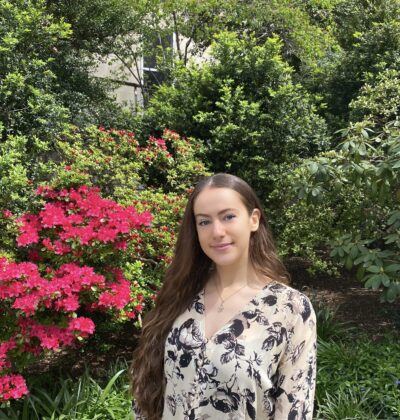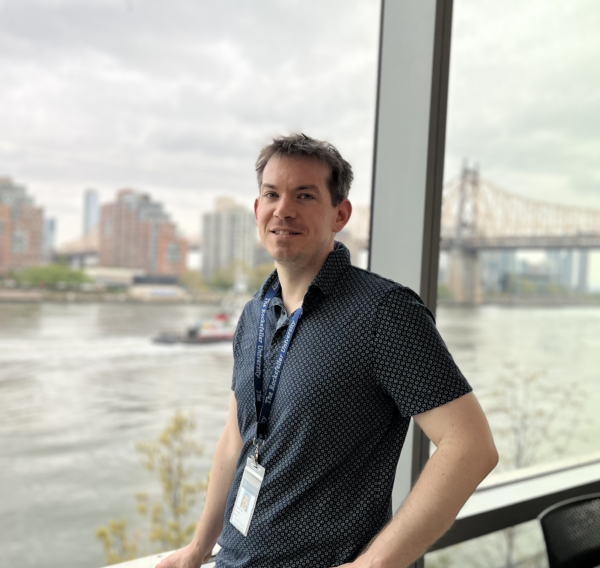Training with the NCDIR
Our Center represents an important resource of instrumentation, software, methods, and expertise that we have developed and optimized. The overarching goal of the NCDIR is to enable the widest range of researchers in the biomedical community to access our interactomics pipeline resource, and to transfer the pipeline technology to researchers’ laboratories. One major method to achieve this goal is to create a body of researchers from a wide diversity of fields who are trained in the use of NCDIR technology. These researchers will, in turn, act as nuclei to seed further spreading of our approaches in the community.
Our Center places great value in scientists training scientists and this training provides direct scientist-to-scientist training for trainees who want to learn and/or apply a tool (method, technology) to their own science. The NCDIR visiting scientist program trains scientists who desire to apply NCDIR science or technology directly to their research. Initially, to ensure quality control and standard operating procedures, this hands-on training occurs at one of the Center locations (Rockefeller University, UCSF, or Center for Infectious Diseases Research). Once the scientist is trained (i.e., knowledge transfer of NCDIR science or technology), NCDIR scientists continue to interact with the scientist remotely, or through additional direct interactions and further technology advancement at an NCDIR site or at the scientist’s home institution/lab. Thus, our cross-institutional training is one of the ways in which the expertise gained through the NCDIR is transferred to the community. Furthermore, providing training also has the added benefit of encouraging scientists to learn new techniques in a collaborative learning environment. The scientists in the Driving Biomedical Projects (DBPs) and Collaborations and Service Projects (C&SPs) also provide hands-on training for other scientists.
Since 2018 our labs have provided direct hands-on training to 93 investigators/students, including 75 scientists from 7 states in the US and 18 scientists from 5 foreign countries; representing a highly active and successful outreach of the Center through user training. The NCDIR currently has over 60 active collaborations from over 40 institutions. If you are a scientist seeking in-depth training, typically we ask that you seek to collaborate with one of our scientists, and then visit one of the labs on a longer-term basis (i.e. several months). The role of the Center in our collaborators’ work is acknowledged through listing the P41 (P41 GM109824/GM/NIGMS NIH HHS/United States) as grant support in their publications or acknowledge the fact that they got help for the NCDIR funded by the P41 grant.
Visiting scientist and reciprocal training program. Generally, to set up training with the NCDIR, community scientists contact a NCDIR scientist (including the PIs) at the institution where the training should best occur. Alternatively, NCDIR personnel reach out to scientists to inform them of the potential contributions NCDIR can make to a project. The training provided is based on the scientific challenge at-hand, and the current status of the NCDIR method or technology. Hands-on direct contact training will occur at one of the Center institutions to ensure quality control and standard operating procedures are followed. Fully equipped benches and adjacent workstations are dedicated and made available for NCDIR visiting scientists; surrounded by the interactomics equipment (cryomilling stations, 96-well solution handling and screening equipment, HPLCs and FPLCs, mass spectrometers, and computer workstations) needed to complete the training, as well as on-hand NCDIR members with the appropriate expertise. Thus, the NCDIR visiting researcher has everything they need within a few paces of their bench for being trained on taking their samples from frozen cells to multiple analytic stages. Once the research, technology, method, or software is proven to be robust within the Center, NCDIR scientists can then visit the trainee’s lab to train these scientists at their home institutions. In this way NCDIR scientists are able to provide hands-on training to teach trainees to directly apply our methods, technologies, and/or modeling to their own research.
The NCDIR Fellows Program. We have developed a Fellows program to provide trainees within the NCDIR the opportunity to receive hands-on training in a specific research, technology, method or computational tool to help further their own research. We have leveraged the framework of the Fellows program from within the NCDIR to trainees in the greater biomedical community. Our current and previous Fellows are listed below.
If you are interested in collaborating with one of our researchers, visit our About Us page to contact the four PI’s directly or contact admin@NCDIR.org!
Training with the NCDIR can also be done virtually via our video links which can be accessed here.
Trainee Profile
5 minutes with the NCDIR’s Milana Stein
 Hey Milana, tell us a bit about your path and what you do at the Rout Lab.
Hey Milana, tell us a bit about your path and what you do at the Rout Lab.
I received my bachelor’s degree in Natural Sciences with a concentration in Organismal Biology from Fordham University. Currently I am a research assistant at the Rout Lab in the Rockefeller University.
What are some of your research interests?
My research interests include studying the altered nuclear-mitochondrial communication pathways in cancer, particularly how mutations of the nuclear pore complex can contribute to the severity of the disease. Additionally, I am investigating the control of gene expression through the regulation of export of mRNA transcripts out of the nucleus in Trypanosoma brucei. The ultimate goal of this project would be to study the composition, structure and function of the nuclear pore complex to understand how it evolved in various eukaryotic lineages, and to determine shared and divergent features.
What brought you to the Rout Lab at Rockefeller University?
Working at the revered Rockefeller University under the supervision of Dr. Samson Obado and Dr. Yael Udi has allowed me to broaden my molecular biology knowledge and research skillset. Thus far, I’ve had the privilege of learning a vast amount of techniques, including: antibody purification, affinity capture of protein complexes, and fractionation of human cancer cell lines. The collaborative environment helps to facilitate orthogonal approaches to solving complex biological problems.
Visiting Scientist Profile
5 minutes with visiting PostDoc, Benedict Smail
 Ben, where are you visiting from?
Ben, where are you visiting from?
I am a postdoc at Dana Farber Cancer Institute, a branch of Harvard Medical School
What are your research interests?
My main interest and project is investigating the mechanism(s) of LINE-1 retrotransposition in vitro using purified proteins or LINE-1 ribonucleoprotein particles. I’m also interested in developing an RNA retrotransposition reporter and translation of LINE-1 proteins.
What do you hope to learn?
I came to the NCDIR to get experience working with LINE-1 RNPs and to learn how to purify proteins, since I was previously dependent on other collaborators. Mike Rout and John LaCava have a track record of working with my current PI in Boston and both have tremendous experience working with purified RNP particles. In particular, John and his research associate Hua have significant experience pulling down LINE-1 RNPs on beads that can be used for biochemical studies. In addition, Mike Rout’s lab has a state-of-the-art FPLC and excellent resources for protein expression and purification.
Introducing our 2020 NCDIR Fellow – Junjie Wang
 The 2020 Fellow is Junjie Wang!
The 2020 Fellow is Junjie Wang!
Dr. Wang is a postdoctoral associate in the lab of Prof. Brian Chait at the Rockefeller University. Dr. Wan’t work focuses on developing experimental and computational methods for mass spectrometry.
Working with members of the Chait and Rout labs, he has developed multiple computational tools: CX-Circos, a highly versatile web-based tool for visualization and analysis of chemical cross-linking data that incorporates a variety of structural and statistical information into a single layout of connectivity graphs for in-depth analysis and biological insights; CX-Validator, a tool that hierarchically sorts CX-MS results into protein-, restraint- and peptide-specific groups for thorough validation of the results. CX-Circos has been used by our groups for assessing multiple thousands of cross-links within the yeast nuclear pore complex as well as in many other proteinaceous assemblies. In addition, this online tool has been used by over a thousand researchers worldwide.
Dr. Wang has also made significant improvements to the identification pipeline for antigen-specific nanobodies: a middle-down mass spectrometry approach that unambiguously identifies the sequences of abundant species from highly complex mixture of nanobodies; a gel slicing approach that enables deep proteome profiling and assists CDR pairing for the classic bottom-up approach; a comprehensive analysis pipeline narrowing down the nanobody candidates from 100 thousands to hundreds, at a high true positive assessment rate and with maximized diversity. These approaches accelerate the identification of potent anti-viral nanobodies that target a wide range of epitopes for diagnostic and therapeutic applications.
He also worked on novel acquisition approaches to advance the capabilities of commercial mass spectrometers to deal with challenging biological samples, including the use of single-ion mass spectrometry, intelligent data acquisition and deep assessment of raw data.
